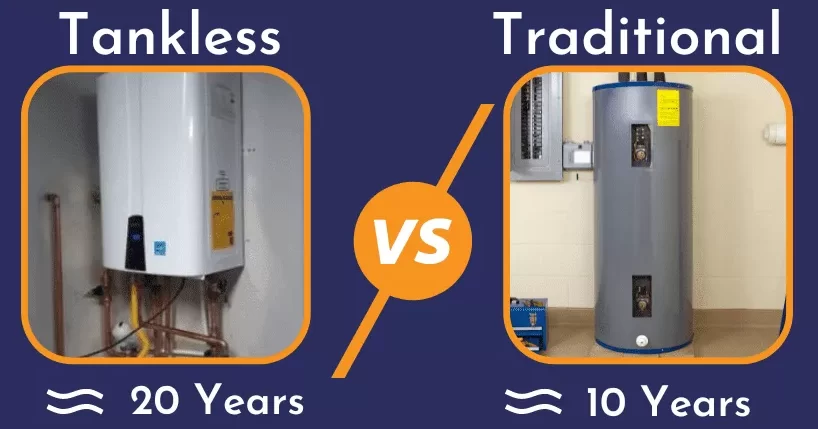How Long Do Tankless Water Heaters Last?
A tankless water heater is an efficient alternative to traditional water heaters. Tankless water heaters supply water on demand. These water heaters don’t store water like traditional storage tanks, but stay inactive when there is no need. Tankless water heaters use an electric element or gas burner for efficient working.
The water passes through a pipe to the device while being warmed by the power source, supplying endless hot water. However, lack of maintenance and aging can break your water heater down. Consulting with an expert in water heater repair in Sacramento can help.
How Long Do Tankless Water Heaters Last?
How Often Do Water Heaters Need to Be Replaced?
The ageing water heater may need a replacement. If your water heater is older than ten years, you may want to change your water heater. However, proper maintenance can prolong the age of your water heater. For example, a tankless water heater can last for twenty years with proper inspection and maintenance schedules. It is recommended to schedule a service inspection once a year to ensure your tankless water heater runs smoothly.
Insufficient upkeep will push you into expensive and premature repairs. Although tankless water heaters require less maintenance than traditional water heaters, scheduling an inspection is necessary. If your geographical location has hard water and you set your water heater to a high temperature, scheduling a service inspection can be beneficial. It improves efficiency and prevents costly repairs.
Additionally, the longevity of a tankless water heater also depends on the heat exchanger installed in your unit. A stainless-steel heat exchanger can increase the lifespan of your tankless water heater. Consulting with an expert in water heater installation in Sacramento can help make an informed decision.
A tankless water heater powered by gas saves $108 on energy costs per year. Electric tankless heaters save $44 per year.
Signs You Need Water Heater Replacement
Many homeowners don’t realize the deteriorating condition of their water heater until it’s time for expensive repairs. The following signs may warn you of potential water heater repair or replacement:
- Water temperature fluctuations
- Reduced water pressure
- High utility bills
- Unusual sounds
- Water leaks
- Reduced water quality
- Lower water supply
Reasons Tankless Water Heaters Have a Longer Lifespan
- Less sediment buildup
- Less corrosion
- Fewer leaks
- No risk of explosions
Conclusion
Every household needs hot water, especially in winter months. Tankless water heaters are appropriate because of their high life expectancy, compact size, endless hot water supply, and energy efficiency. A tankless water heater provides comfort and convenience. It’s a better investment than a traditional water heater. However, poor maintenance can reduce its lifespan and cause expensive repairs. Scheduling an inspection can identify potential problems and prevent unexpected inconveniences in winter.

















